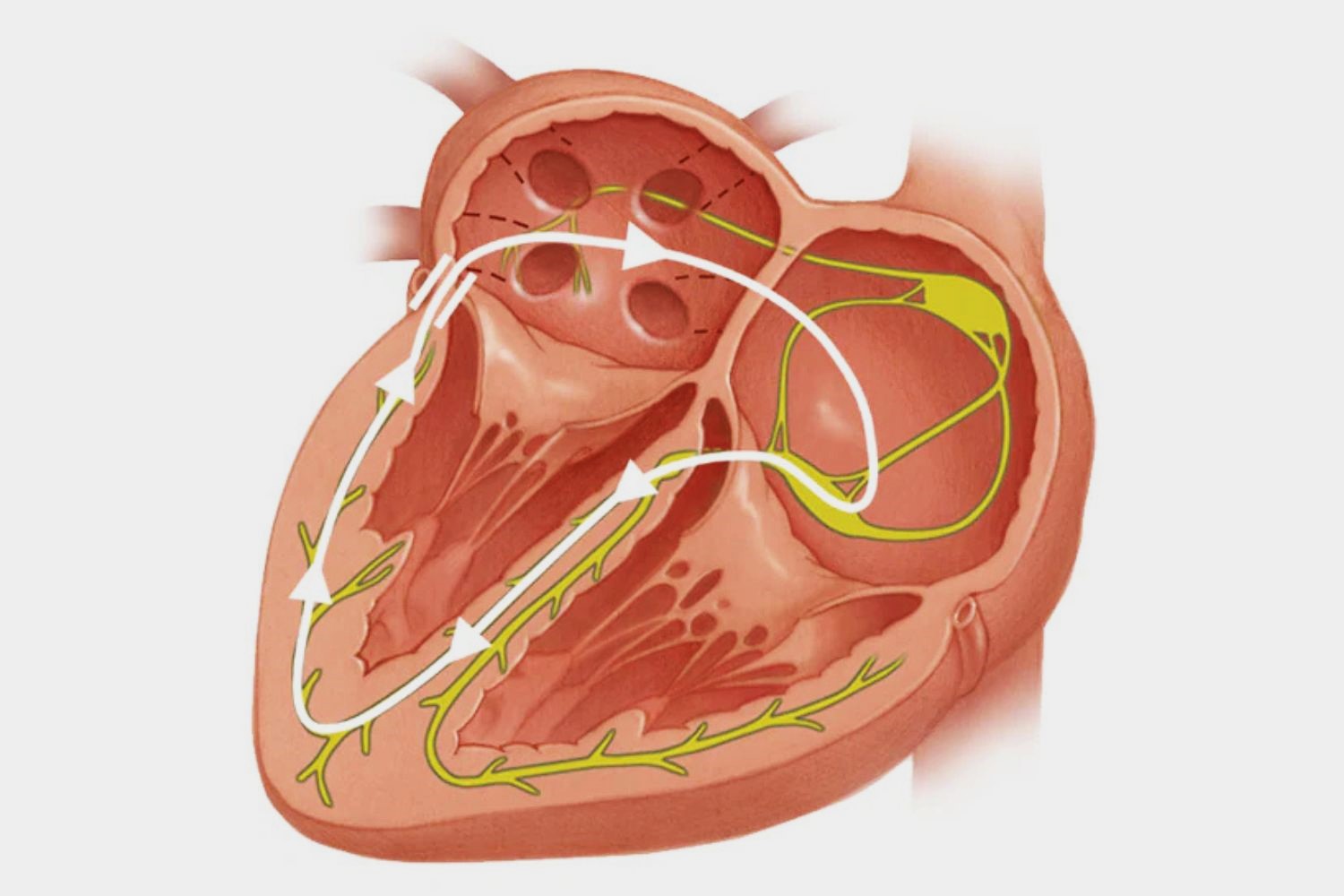
Wolff–Parkinson–White Syndrome (WPW) is a heart condition that can cause rapid heartbeats. Ever wondered what makes this syndrome unique? WPW involves an extra electrical pathway between the heart's upper and lower chambers, leading to episodes of tachycardia. This condition can affect people of all ages, including infants. Symptoms might include palpitations, dizziness, or even fainting. While some people with WPW may never experience symptoms, others might need treatment like medication or surgery. Understanding WPW is crucial for managing it effectively. Let's dive into 27 fascinating facts about Wolff–Parkinson–White Syndrome to help you get a better grasp of this condition.
Key Takeaways:
- Wolff–Parkinson–White (WPW) syndrome is a congenital heart condition that can cause rapid heartbeats and other symptoms. It can be managed with medications, procedures, and lifestyle adjustments.
- WPW syndrome can affect people of all ages, but is more common in teenagers and young adults. Regular check-ups, genetic testing, and avoiding triggers are important for managing the condition.
What is Wolff–Parkinson–White Syndrome?
Wolff–Parkinson–White (WPW) syndrome is a condition that affects the heart's electrical system. It can cause rapid heartbeats and other symptoms. Let's explore some interesting facts about this condition.
-
WPW syndrome is a congenital heart defect, meaning people are born with it.
-
The condition is named after the doctors who first described it in 1930: Louis Wolff, John Parkinson, and Paul Dudley White.
-
WPW syndrome involves an extra electrical pathway in the heart, which can lead to episodes of rapid heart rate (tachycardia).
Symptoms and Diagnosis
Understanding the symptoms and how WPW syndrome is diagnosed can help in managing the condition effectively.
-
Common symptoms include palpitations, dizziness, shortness of breath, and fainting.
-
Some people with WPW syndrome may not experience any symptoms at all.
-
An electrocardiogram (ECG) is the primary tool used to diagnose WPW syndrome.
-
The characteristic sign of WPW on an ECG is a short PR interval and a delta wave.
Treatment Options
There are several ways to manage and treat WPW syndrome, depending on the severity of the symptoms.
-
Medications such as antiarrhythmic drugs can help control the heart rate.
-
Catheter ablation is a common procedure used to destroy the extra electrical pathway.
-
In some cases, an electrical cardioversion may be necessary to restore a normal heart rhythm.
Risk Factors and Complications
Knowing the risk factors and potential complications can help in early detection and treatment.
-
WPW syndrome can occur in people of all ages, but it is often diagnosed in teenagers or young adults.
-
The condition is more common in males than females.
-
WPW syndrome can sometimes lead to more serious heart problems, such as atrial fibrillation.
-
Sudden cardiac arrest is a rare but serious complication of WPW syndrome.
Living with WPW Syndrome
Living with WPW syndrome requires some lifestyle adjustments and regular medical check-ups.
-
Regular follow-up appointments with a cardiologist are essential for managing the condition.
-
People with WPW syndrome should avoid stimulants like caffeine and certain medications that can trigger rapid heartbeats.
-
Wearing a medical alert bracelet can be helpful in case of an emergency.
Genetic and Inheritance Factors
Understanding the genetic aspects of WPW syndrome can provide insights into its occurrence and prevention.
-
WPW syndrome can sometimes run in families, suggesting a genetic component.
-
Genetic testing may be recommended for family members of someone diagnosed with WPW syndrome.
-
Researchers are still studying the specific genes involved in WPW syndrome.
Interesting Historical Facts
The history of WPW syndrome is filled with fascinating discoveries and advancements.
-
The first successful catheter ablation for WPW syndrome was performed in the 1980s.
-
Before the advent of catheter ablation, surgical procedures were the primary treatment option.
-
Advances in medical technology have significantly improved the diagnosis and treatment of WPW syndrome.
Famous Cases
WPW syndrome has affected some well-known individuals, bringing more attention to the condition.
-
Tennis player Billie Jean King was diagnosed with WPW syndrome in the 1970s.
-
Former NBA player Larry Bird also has WPW syndrome.
-
These famous cases have helped raise awareness about the condition and its impact on athletes.
Research and Future Directions
Ongoing research continues to improve our understanding and treatment of WPW syndrome.
- Scientists are exploring new ways to prevent and treat WPW syndrome, including advanced genetic studies and innovative medical technologies.
The Heartbeat of Knowledge
Understanding Wolff–Parkinson–White Syndrome can make a huge difference in recognizing symptoms early and seeking timely treatment. This condition, characterized by an extra electrical pathway in the heart, can lead to rapid heartbeats and other complications. Knowing the signs, such as palpitations, dizziness, and shortness of breath, helps in managing the condition effectively.
Treatment options range from medications to procedures like catheter ablation, which can correct the abnormal pathway. Regular check-ups with a cardiologist ensure that the heart stays in good rhythm. Awareness and education about WPW Syndrome empower individuals to take control of their heart health.
Stay informed, listen to your body, and don't hesitate to seek medical advice if something feels off. Your heart's health is crucial, and understanding WPW Syndrome is a step towards ensuring it beats strong and steady.
Frequently Asked Questions
Was this page helpful?
Our commitment to delivering trustworthy and engaging content is at the heart of what we do. Each fact on our site is contributed by real users like you, bringing a wealth of diverse insights and information. To ensure the highest standards of accuracy and reliability, our dedicated editors meticulously review each submission. This process guarantees that the facts we share are not only fascinating but also credible. Trust in our commitment to quality and authenticity as you explore and learn with us.
